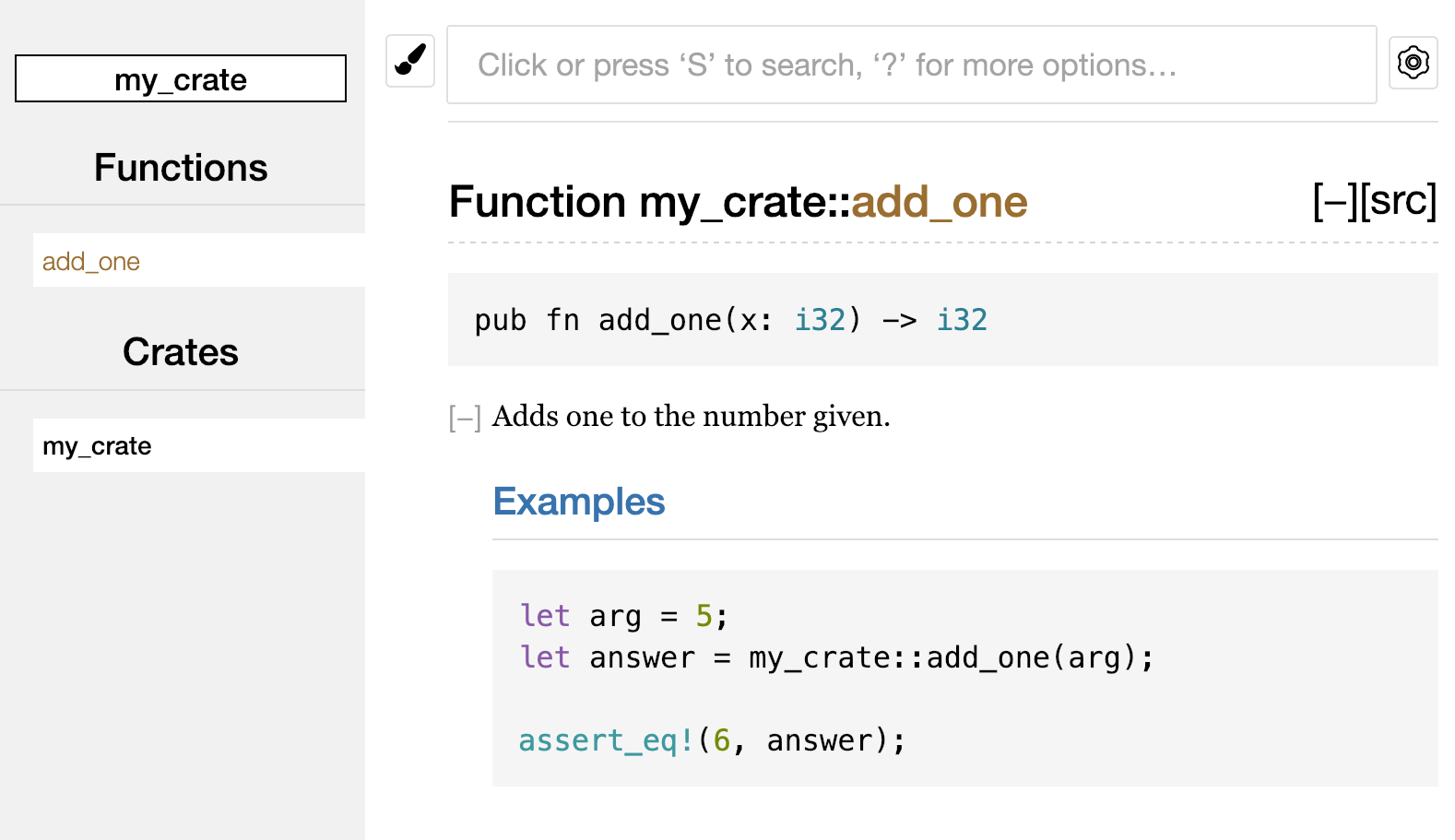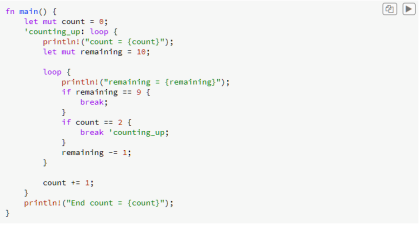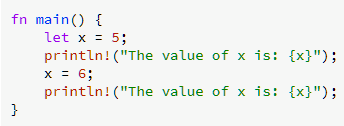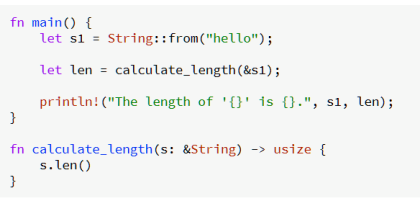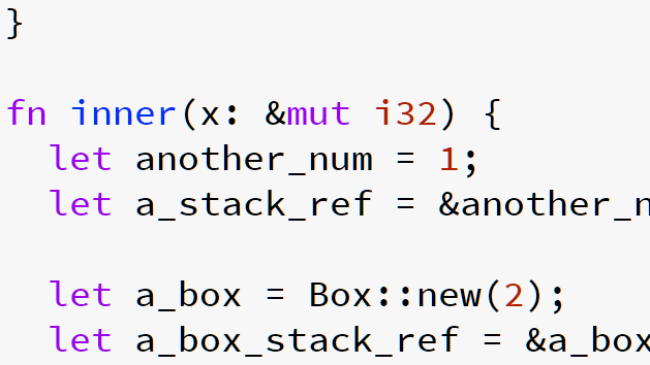函数(fn)
fn关键字声明新函数
fn main() {
println!("Hello, world!");
another_function();
}
fn another_function() {
println!("Another function.");
}参数
fn main() {
print_labeled_measurement(5, 'h');
}
fn print_labeled_measurement(value: i32, unit_label: char) {
println!("The measurement is: {value}{unit_label}");
}声明和表达式
- 声明(Statements) 是执行某些操作但不返回值的指令。
- 表达式(Expressions) 计算结果值。
fn main() {
let y = {
let x = 3;
x + 1
};
println!("The value of y is: {y}");
}这个表达式:
{
let x = 3;
x + 1
}是一个块,在本例中,其计算结果为4。y 该值作为语句的一部分进行绑定let。请注意,该x + 1行末尾没有分号(;),这与您迄今为止看到的大多数行不同。表达式不包含结束分号。如果在表达式末尾添加分号,则将其转换为语句,并且它不会返回值。当您接下来探索函数返回值和表达式时,请记住这一点。
有返回值的函数
不命名返回值,但必须在箭头 ( ->) 之后声明它们的类型。在 Rust 中,函数的返回值与函数体块中最终表达式的值同义。return您可以通过使用关键字并指定值从函数中提前返回,但大多数函数都会隐式返回最后一个表达式
fn five() -> i32 {
5
}
fn main() {
let x = five();
println!("The value of x is: {x}"); // 5
}fn five() -> i32 {
return 5;
}
fn main() {
let x = five();
println!("The value of x is: {x}"); // 5
}注释
源代码中留下注释,编译器会忽略这些注释,但阅读源代码的人可能会发现有用
fn main() {
// I’m feeling lucky today
let _lucky_number = 7;
// So we’re doing something complicated here, long enough that we need
// multiple lines of comments to do it! Whew! Hopefully, this comment will
// explain what’s going on.
test();
}
/**
* test
*/
fn test() -> i64 {
8
}
/// Adds one to the number given.
///
/// # Examples
///
/// ```
/// let arg = 5;
/// let answer = my_crate::add_one(arg);
///
/// assert_eq!(6, answer);
/// ```
pub fn add_one(x: i32) -> i32 {
x + 1
}
